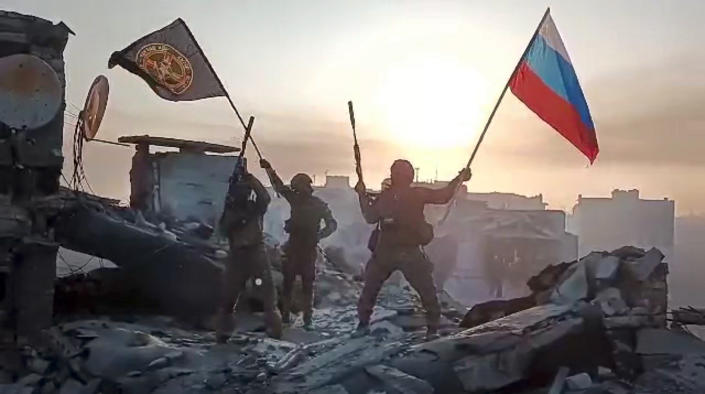Peace, food and fertilizer: African leaders' challenge heading to talks with Moscow, Kyiv

Views (166)

A delegation of six African leaders set to hold talks with Kyiv and Moscow aim to “initiate a peace process," but also broach the thorny issue of how a heavily-sanctioned Russia can be paid for the fertilizer exports Africa desperately needs, a key mediator who helped broker the talks said in an interview with The Associated Press. Jean-Yves Ollivier, an international negotiator who has been working for six months to put the talks together, said the African leaders would also discuss the related issue of easing the passage of more grain shipments out of Ukraine amid the war and the possibility of more prisoner swaps when they travel to both countries on what they’ve characterized as a peace mission.
Jean-Yves Ollivier, an international negotiator who has been working for six months to put the talks together, said the African leaders would also discuss the related issue of easing the passage of more grain shipments out of Ukraine amid the war and the possibility of more prisoner swaps when they travel to both countries on what they’ve characterized as a peace mission.
The talks will likely be next month, Ollivier said.
He arrived in Moscow on Sunday and will also go to Kyiv for meetings with high-level officials to work out "logistics" for the upcoming talks. For one, the six African presidents would likely have to travel to Kyiv by night train from Poland amid the fighting, he said.
The talks also have the approval of the United States, the European Union, the United Nations, the African Union and China, Ollivier said in a video call with the AP on Friday.
Neither side in the war appears ready to stop fighting, though.
The aim was to make a start, said Ollivier, a 78-year-old Frenchman who brought opposing sides together in high-stakes negotiations in the late 1980s that helped end apartheid in South Africa.
“It starts with signs. It starts with dialogue. And this is what we are going to try to do," Ollivier said. “No guarantee that we are going to succeed but, for the time being, Russia and Ukraine have accepted ... a delegation coming specifically to their countries to talk about peace.”
But they also need to broach ways of making it easier for African nations to receive shipments and pay Russia for fertilizers, Ollivier said. Russian fertilizer is not under international sanctions but the U.S. and some Western nations have targeted Russian cargo ships for sanctions. Russia’s access to the SWIFT global financial transaction system also has been restricted by the sanctions, leaving African nations struggling to order and pay for critical fertilizers.
“We will need to have a window whereby SWIFT will be authorized for this specific point,” Ollivier said. “That will be on the table and we hope that in that case we will gain the support of the Russians for the grains from Ukraine, and we will gain the support of the Ukrainians to find payments and shipments possible for the Russian fertilizer.”
Ukraine and Russia are far apart in terms of any agreements that might form the base of a peace deal.
The African delegation still had a wide cross-section of backing, Ollivier said, after China also “came to us and offered support” on the basis it would be a “parallel effort” to Beijing's plan.
“More support, more weight will be put on the negotiation (with Moscow and Kyiv)," said Ollivier, the founding chairman of the London-based Brazzaville Foundation, an organization that deals with conflict resolution. “If one party says no, they will consider to who they are saying no. Are they saying no only to Jean-Yves Ollivier? To the Brazzaville Foundation? To the six (African) heads of state?”
“Or are they saying no to the United Nations, or to the Chinese, or to the Americans. To the British? To the European Union?"
___
0 Likes
